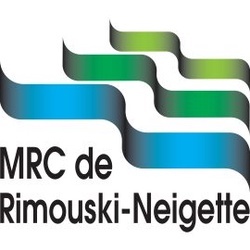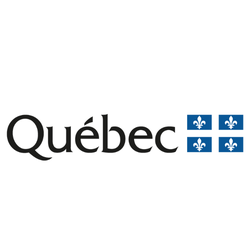
Open
MRC Rimouski-Neigette — Local Investment Fund
Last Update: October 27, 2025
Rimouski, QC
FLI/FLS funds support Quebec economic impact projects
Loans and Capital investments
At a glance
Funding available
Financing goals
Integrate new technologies
Optimize production processes
Reduce the ecological footprint
See more
Eligible Funding
- Maximum amount : 150,000 $
- Minimum amount : 10,000 $
- Up to 50% of project cost
Timeline
- Open Date : June 20, 2023
- Closing date : July 5, 2023
Eligible candidates
Eligible Industries
- Manufacturing
- Retail trade
- Information and cultural industries
- Professional, scientific and technical services
- Health care and social assistance
- Arts, entertainment and recreation
- Accommodation and food services
- Other services (except public administration)
- Public administration
Location
- Rimouski
Legal structures
- Non-profit
- Public or Parapublic institution
- For-profit business
- Social economy enterprise
- Non-financial cooperative
Annual revenue
- All revenue ranges
Organisation size
- All organization sizes
Audience
- Startups
Non-profit candidates
Sector of operation
- Environment
- Economic, Social and Community Development
- Employment and Training
Target groups
- Rural / Remote communities
- Business owners / entrepreneurs
- Nonprofits / charities
Revenue structures
- Mixed revenue (50%+ earned)
Scope
- Regional
Overview
The MRC Rimouski-Neigette Local Investment Fund (FLI/FLS) supports the start-up, expansion, and succession of businesses in the Rimouski-Neigette region, offering funding of up to $150,000 per business through loans covering a range of eligible projects, including commercialization, productivity improvement, and digital transformation. The program targets for-profit enterprises, cooperatives, and social economy organizations to stimulate economic development and job creation.
Activities funded
- Business start-up and early-stage commercialization projects.
- Ownership transfer and business succession initiatives.
- Acquisition of existing businesses or their assets.
- Projects focused on improving productivity, digital transformation, or implementing sustainable organizational practices.
- Business growth and expansion, including the launch of new products, services, export projects, and branch establishment.
Eligibility
- The business must be legally constituted under Quebec or Canadian law and can be a for-profit company or a collective enterprise (cooperative or eligible non-profit organization) with commercial activities.
- The business must operate within the territory of the MRC de Rimouski-Neigette and have its head office in Quebec.
- The business must be registered with the Quebec Enterprise Register (REQ).
- Projects must relate to the start-up, acquisition, succession, improvement, transformation, growth, or expansion of a company.
- In the case of social economy enterprises, specific requirements must be met regarding management, revenue, employment, and economic activity (such as being beyond the start-up phase, generating mainly autonomous revenues, and holding adequate net assets).
Who is eligible?
- Legally incorporated for-profit companies under Quebec or Canadian law
- Collective enterprises such as cooperatives and non-profit organizations (NPOs) with commercial activities, recognized under the Social Economy Act
- Small and medium-sized businesses (SMEs) from all sectors, except those explicitly excluded
Who is not eligible
- Companies listed in the Register of enterprises ineligible for public contracts (RENA), including their subcontractors.
- Government-owned corporations, government-controlled companies, or businesses majority-owned by a public corporation.
- Companies under bankruptcy protection, restructuring, or insolvency proceedings.
- Businesses involved in sectors such as arms production or distribution, fossil fuel extraction/refining (except low-carbon transition activities), gambling and games of chance, violent gaming or combat sports with living creatures, and the sex industry.
- Businesses with a history of ethical misconduct, non-compliance with environmental laws, or violations of labor or human rights standards.
Eligible expenses
- Additional working capital required for the execution of the project, up to a maximum of two years.
- Capital expenditures directly linked to the project, including acquisition of technology, land, buildings, equipment, machinery, and vehicles.
- Construction, expansion, renovation, and layout costs for land and premises directly related to the project.
- Professional fees necessary prior to the project’s implementation, such as feasibility analysis, external audits, or impact studies.
- Professional fees directly related to the execution of the project, such as implementation of technology, equipment, and machinery, or for acquisition, construction, renovation, and layout of property and premises.
- For entrepreneurial succession projects: expenses for acquiring business ownership titles (voting shares or equity) and business assets, as well as professional fees directly related to the business transaction and succession process.
Eligible geographic areas
- Companies operating within the territory of the MRC (Municipalité Régionale de Comté) de Rimouski-Neigette.
- Businesses with their head office located in Quebec.
Selection criteria
- Economic viability and long-term profitability of the business.
- Knowledge and experience of the project leaders, including relevant skills and management abilities.
- Environmental and societal benefits resulting from the project, with emphasis on sustainable business practices.
- Level of openness in labor relations and treatment of employees.
- Participation of other financial partners and promoters’ equity contribution to the project.
How to apply
1
Preparation of the request
- Complete the financial aid application form.
- Draft the business plan and/or provide a detailed description of the project.
- Prepare a detailed breakdown of project-related expenses.
- Establish the financial setup of the project and obtain confirmation of other required financial aids or funding.
- Gather the financial statements from the last three years as well as interim financial statements if necessary.
- Prepare the projected financial statements.
- Draft and include a compliance statement regarding Francization or attach the Francization certificate if applicable.
- Provide a compliance statement regarding employment equality or attach the Employment Equity Program if applicable.
- Gather any other documents required by the SOPER.
2
Submission of the request
Send the complete documentation to the SOPER for evaluation.
Additional information
- The decision-making process and management of the funds are overseen by a common investment committee (CIC), which may request exceptions to the investment framework under certain conditions.
- The policy is subject to change by the managing organization but must remain within the authorized frameworks established by external partners such as the MEIE and Fonds locaux de solidarité FTQ, s.e.c.
- If changes to the investment policy compromise joint investment principles, CIC input is required before implementation.
- The policy explicitly states that in no case can an exception be granted for a business with a negative net worth after the project.
Apply to this program
Frequently Asked Questions about the MRC Rimouski-Neigette — Local Investment Fund Program
Here are answers to the most common questions about the MRC Rimouski-Neigette — Local Investment Fund. This section explains what the program is, how much funding is available, eligibility requirements, application deadlines, and other important details to help you determine if this grant is right for your business.
What is the MRC Rimouski-Neigette — Local Investment Fund?
How much funding can be received?
What is the deadline to apply?
Who is eligible for the MRC Rimouski-Neigette — Local Investment Fund program?
What expenses are eligible under MRC Rimouski-Neigette — Local Investment Fund?
Where is the MRC Rimouski-Neigette — Local Investment Fund available?
Is the MRC Rimouski-Neigette — Local Investment Fund a grant, loan, or tax credit?
Apply to this program
More programs like this

Grant and FundingClosed
PSCE – Component 2
Investissement Québec (IQ)Non-repayable funding to support SMEs’ export market diversification

Grant and FundingClosed
MAPAQ — Food Processing Program — Component 2
Ministry of Agriculture, Fisheries and Food (MAPAQ)Enhancing productivity through food industry automation assistance

Grant and FundingOpen
SCALE AI — Acceleration
Scale AI ClusterSupports Canadian AI startups and SMEs focused on value chains

Tax CreditsOpen
Development of E-Business Tax Credit (CDAE)
Investissement Québec (IQ)Tax credit for development of a Quebec e-business

Tax CreditsOpen
Research, Innovation and Commercialization Tax Credit (CRIC)
Gouvernement du QuébecRefundable tax credit for Quebec business R&D and precommercialization

Grant and FundingOpen
Support for biofood exports - individual projects
Ministry of Agriculture, Fisheries and Food (MAPAQ)SEB supports Quebec agri-food market expansion outside Quebec

Grant and FundingOpen
ÉcoPerformance — Recommissioning of building mechanical systems
Gouvernement du QuébecFunding to optimize the operation of building mechanical systems

Grant and FundingSuspended
Individual Market Access Support (SIAM)
Aliments du QuébecMarket Access Support for Quebec Food Processors

Expert AdviceLoans and Capital investmentsOpen
Panorama Program
Investissement Québec (IQ)Supports export diversification with financial services and expert guidance

Loans and Capital investmentsOpen
Financing to respond to the offensive of new tariffs and for initiatives for resilient and exporting companies (FRONTIERE)
Investissement Québec (IQ)Supports Québec exporters impacted by new U.S. tariffs
Sign up to our platform to access the MRC Rimouski-Neigette — Local Investment Fund information sheet for free
Get access to 4,000+ programs, practical guides, personalized alerts, and an AI assistant to support your grant applications.